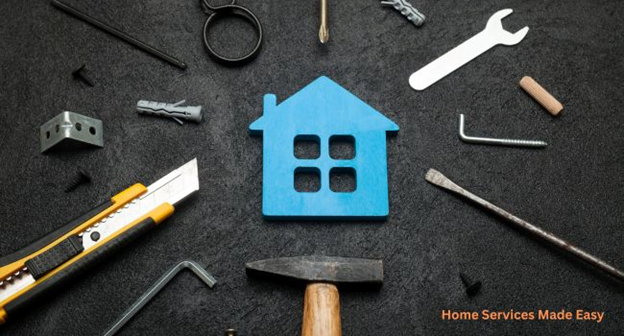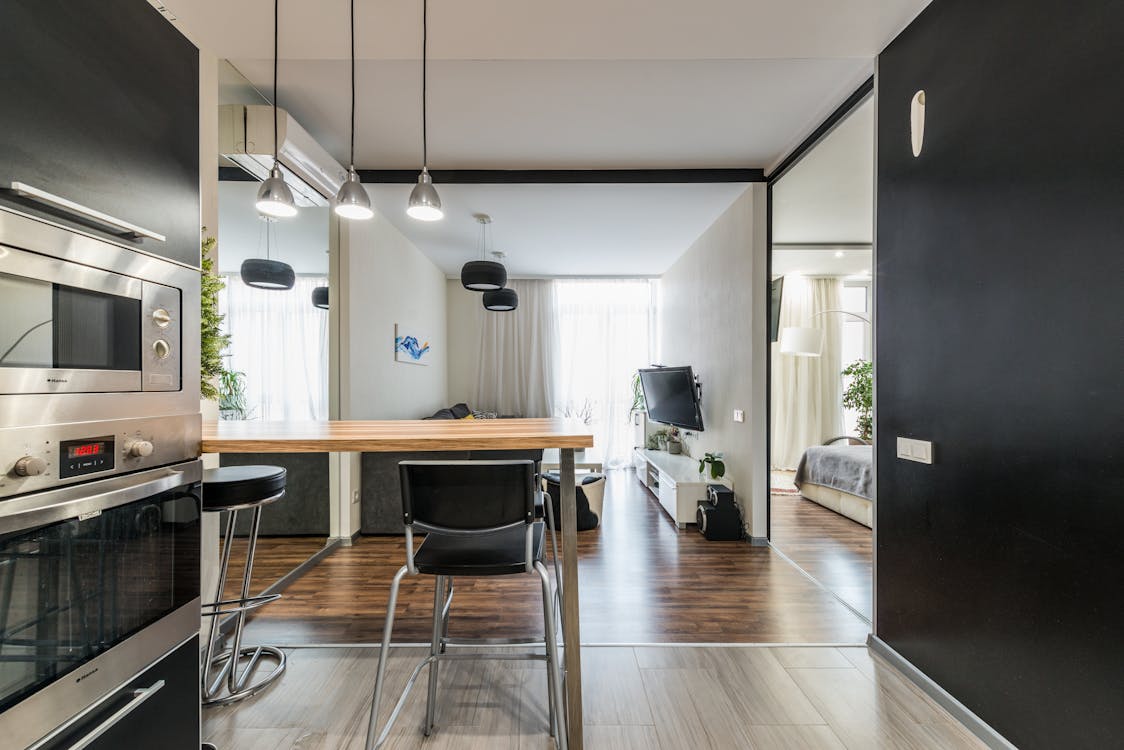With approximately 44 million Americans renting in 2022, choosing between renting an apartment or a house is a significant decision for many. It depends on your lifestyle, financial situation and personal preferences. This guide will explore the pros and cons of each option to help you make an informed choice. From the spaciousness of a house to the convenience of apartment living, we’ll cover all the key factors, including the impact of your choice on aspects like hosting guests and accommodating your dream accent furniture pieces.
The Space Factor: House vs. Apartment
Houses typically offer more space than apartments, including additional rooms, garages and outdoor areas. This extra space can be beneficial for hosting friends, accommodating must-have furniture like a boucle bed or if you have a family. On the other hand, apartments, though generally smaller, may offer a more compact and manageable living space, ideal for singles or couples without children.
In terms of hosting capabilities, a larger house allows for more guests and activities. It provides space for overnight guests without cramping your style, as you can set up an amazing guest room or two with the best mattresses. Apartments, while cozier, may require more creative solutions for hosting like multi-functional accent furniture pieces. Consider how often you entertain and the number of guests you typically host when deciding between a house and an apartment.
Privacy Considerations in Renting
Renting a house usually offers more privacy compared to an apartment. With no shared walls or communal spaces, houses provide a more secluded living experience. This can be important if you value quietness and personal space. Apartments, while less private, often foster a sense of community among residents, which can be appealing if you enjoy socializing with neighbors.
The balance between privacy and community living is a personal preference. If you prefer a more solitary environment, a single house may suit you better. If you enjoy being part of a community and don’t mind occasional noise from neighbors, an apartment might be more your style.
Budgeting for Rent: House vs. Apartment
The cost of renting a house is generally higher than renting an apartment. This includes not only the rent but also utilities, which can be more expensive in a larger space. Apartments, typically being smaller and part of larger complexes, often have lower rent and utility costs. This makes apartments a more budget-friendly option, especially for those in the early stages of their careers or living in expensive urban areas.
When budgeting for rent, consider not only the monthly rent amount but also the associated costs like utilities, parking and any additional fees. Apartments may offer a more predictable budget, with some utilities and maintenance costs often included in the rent. Houses, while offering more space and privacy, may require a larger budget to comfortably cover all expenses.
The Convenience of Apartment Living
One of the major benefits of apartment living is the convenience it offers. Many apartment complexes come with amenities like gyms, pools and communal areas. On-site staff, such as maintenance and security personnel, add an extra layer of convenience and security. This can be particularly appealing if you have a busy lifestyle and value having these facilities readily available.
Apartments also often require less maintenance from the renter, with tasks like lawn care and exterior upkeep handled by the complex. This can free up your time and reduce the responsibilities associated with your living space. However, this convenience can come at the cost of less personal space and privacy.
The Flexibility of Renting a House
Renting a house can offer more flexibility in terms of space and customization. With more room to grow, houses are often preferred by families or those planning to become homeowners in the future. They provide a sense of what owning a home might be like, including responsibilities like yard maintenance and larger-scale cleaning.
This flexibility can also extend to the rules of the rental. Houses often have fewer restrictions compared to apartment complexes, allowing for more personalization and freedom in how you use the space. This can be particularly appealing if you enjoy gardening, have pets or want to experiment with interior design.

Renting a House: a Path to Ownership?
For many, renting a house is seen as a stepping stone toward homeownership. It allows you to experience what it’s like to live in and maintain a larger space without the long-term commitment of a mortgage. This experience can be invaluable in preparing you for future homeownership.
However, it’s important to remember that renting a house doesn’t automatically lead to buying a house. While it can provide a glimpse into what homeownership entails, it still lacks the equity-building benefits of owning a home. Consider your long-term goals and how renting a house aligns with them.
Peace of Mind in Renting: What to Consider
Peace of mind is an important aspect of renting. Apartments can offer a sense of security with features like controlled access, on-site security and close proximity to neighbors. This can be reassuring, especially for those living alone or in busy urban areas.
Houses, while offering more privacy, may not have the same level of built-in security features as apartments. However, they can provide a sense of independence and control over your living space. Consider what factors contribute to your sense of security and well-being when choosing between a house and an apartment.
Maintenance and Repairs: House vs. Apartment
Understanding the maintenance responsibilities associated with different types of rentals is crucial. Renting a house often means you are responsible for more maintenance tasks, both inside and outside the property. This can include lawn care, minor repairs and general upkeep. While this can provide a sense of ownership and control, it also requires time and effort.
In contrast, apartments typically offer a more hands-off approach to maintenance. Building management usually handles major repairs and upkeep, making apartment living less labor-intensive for the renter. This can be a major advantage if you’re not interested in dealing with the complexities of property maintenance.
Roommates and Rental Spaces
For those planning to live with roommates, a house often offers a better arrangement due to the additional space and privacy. Larger living areas, multiple bathrooms and outdoor spaces can make shared living more comfortable in a house. This can be crucial for maintaining a harmonious living environment with roommates.
When considering an apartment for shared living, think about the layout and communal spaces. Apartments with open floor plans and multiple bathrooms can work well for roommates, but it’s important to ensure everyone has enough personal space. Consider the dynamics of your household and how each space would accommodate your living arrangements.

Location and Lifestyle: Choosing Where to Rent
Location is a key factor in deciding whether to rent a house or an apartment. Apartments are often located in urban areas, close to amenities like restaurants, shopping and public transportation. This can be ideal if you prefer a fast-paced, urban lifestyle. Houses, on the other hand, are more commonly found in suburban or rural areas and may offer more space and a quieter environment.
Consider how location affects your daily life and activities. If you value being in the heart of the city, an apartment might be the best fit. If you prefer more space and a quieter setting, a house could be more suitable.
Wrapping Up
Deciding whether to rent an apartment or a house involves weighing various factors, including space, privacy, budget, location and lifestyle needs. Whether you prioritize the convenience and amenities of apartment living or the space and independence of a house, the key is to choose a rental that aligns with your personal goals and lifestyle. Remember, the right choice is the one that best suits your current needs and future aspirations.




